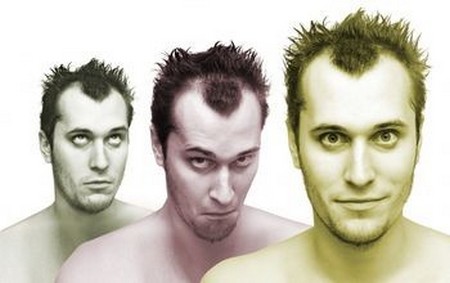Schizophrenia is a severe, lifelong mental disorder characterized by genetic disposition or environmental causes such as abuse, stress or trauma. Schizophrenia is a condition in which the person is unable to tell the difference between the real and unreal experiences. Apart from this, he is unable to think logically, lack normal emotional responses and also not able to act normal in different social situations. A person suffering from schizophrenia finds himself/herself in a situation where he/she hear, feel and see odd things which have nothing to do with reality.
It is a complicated illness and the medical experts are still unsure about the reasons behind this illness. About 1% of population all over the world is affected by schizophrenia and is common in both men and women. However, in women its intensity is not as severe as in men. Schizophrenia is common in young adults; however, there are instances where it affects the people with age over 45 years. In children, schizophrenia is very scarce, but yet there are few cases where children fall victim of this disorder. You will be surprised to know that over 2 million Americans are living a life of schizophrenic.
Different Types of Schizophrenia
Medical practitioners and experts have classified the disorder into five different types based on the symptoms each and every type exhibit. Each and every type of schizophrenia shows symptoms different from each other. Another important fact is that the symptoms don’t remain the same as they keep changing with time. So, one can expect to have symptoms of more than one type in a single schizophrenic patient. Let us have a brief look on these five different types.
Paranoid Schizophrenia
Delusions and auditory hallucinations are associated with this type of schizophrenic disorder. In this people develops a feeling of being spied upon. They hear different voices which comment on their behavior, command them to do things, interact with them and so on. Also, the person feels that his loved ones are conspiring against him. Besides all these symptoms, the person with paranoid schizophrenia is often much more practical and don’t like to speak about the symptoms. The paranoid schizophrenia can be treated with proper medication and care.
Disorganized Schizophrenia
Disorganized schizophrenia is a mental disorder in which a patient behaves like a child and usually has a disorganized speech and thoughts. It is considered as the most severe schizophrenia among all other types. The people with disorganized schizophrenia often feel difficulty in organizing and connecting their thoughts in a proper logical sequence. The people with disorganized schizophrenia usually have a slurred speech which makes it difficult for other to comprehend. Another major symptom is thought blocking which means that they stop suddenly within the middle of any thought. Other symptoms include a blank, expressionless face, monotonous voice and meaningless behavior and attitude. The patient is not able to take care of himself or unable to fulfill his hygienic needs.
Catatonic Schizophrenia
Catatonic schizophrenia is another type of schizophrenia. The people who are suffering from this type of schizophrenia are normally disorganized, inept and are bizarre in their behaviors. The people with catatonic schizophrenia develop the symptoms like shaky movements, some repetitive movements such as flapping hands or thrashing legs or in some severe cases the patient may become inert. The people with catatonic schizophrenia are unable to take proper care of them. Some other symptoms of catatonic schizophrenia involve the repetition of words or sentences again and again. This type of schizophrenia is not a common type.
Residual Schizophrenia
Residual schizophrenia is common in the people who have a long history of being a schizophrenic patient. Some of the common symptoms of residual schizophrenia involve catatonic behavior, unsystematic speech, delusions, hallucinations, black face, disorganized behaviors, monotonous speech, lack of proper planning, lack of interaction, and lack of happiness and pleasure. The patients with residual schizophrenia require special care as they are not capable of taking care of themselves. The patient usually bears a negative attitude with this disorder.
Undifferentiated Schizophrenia
It is the type of schizophrenia wherein a person shows the sign of disease which is unable to categorize. In simple words, undifferentiated schizophrenia is a disorder in which the symptoms a patient exhibit are common in different types and one can not specify them as a symptom of single type. It is considered a common disorder of brain.
Types of Schizophrenia in Children
We have mentioned in introductory lines that schizophrenia is a disorder which is scarce in children. However, this disease can have an effect on the children as well but in a very limited number, to say 3 out of 1,000 children under the age of 12 can get this disease. The children from age 5 to adolescent age can suffer from schizophrenia. However, it is extremely difficult to grab the early warnings and symptoms in the kids as these are varying in nature. The common symptoms in children can be hallucination, depression, disorganized body movements, poor social skills, lack of attention and verbal communication, inconsistent behaviors, poor eye contact, disorganized thinking and speech. If you see a lack of power and energy in your children or observe that your children is hesitant in making a strong eye contact then there may be a chance that your children is suffering from schizophrenia. There are no separate types of schizophrenia for children as they share the same types as mentioned above.
These are the major types of schizophrenia. Each and every type has some typical symptoms which are often common in more than one type. It is because of this reason, schizophrenia is often considered as a complex mental state. The best way to prevent this disorder is its early diagnosis and treatment. The people with schizophrenia require much more attention and care not from only medical experts but from the people in close relation with them.


